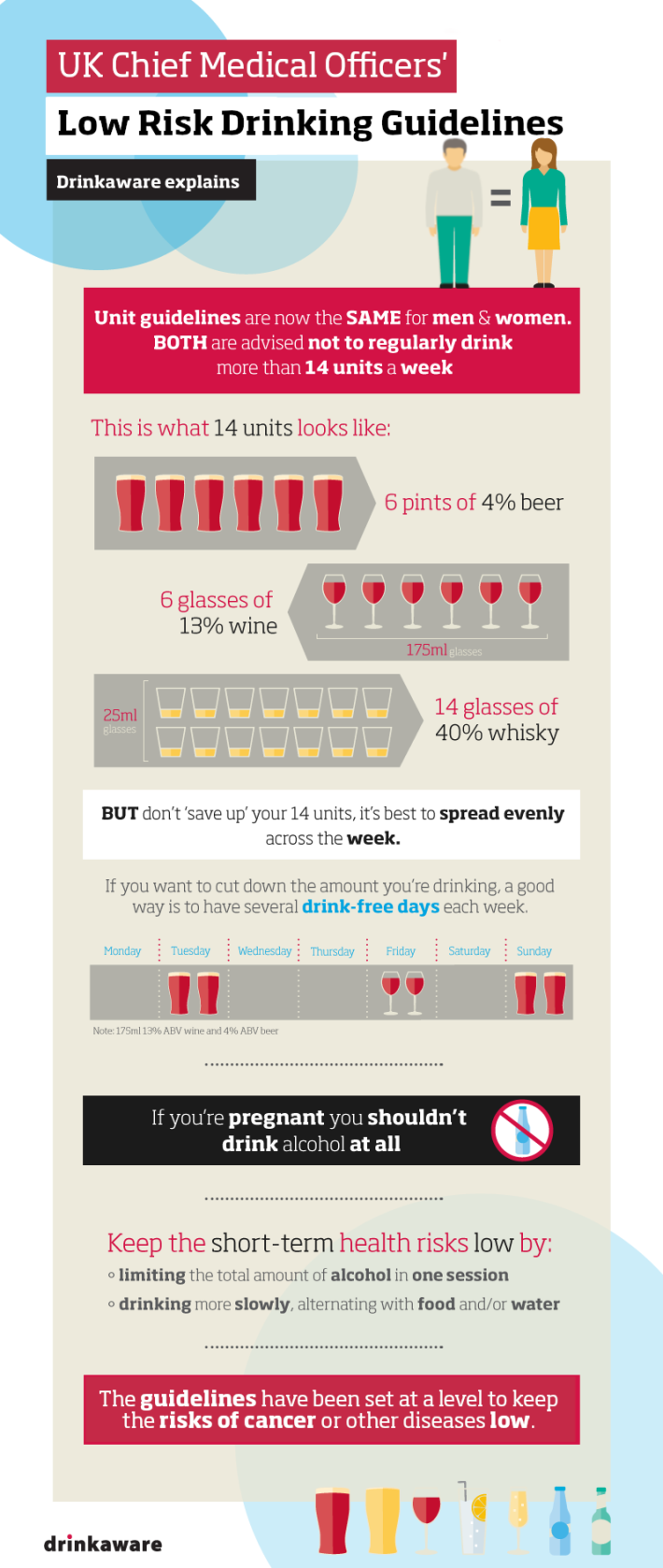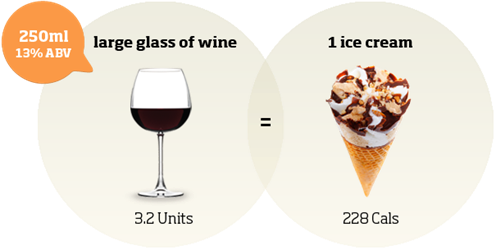 At PYB Health we are keen to educate our local community with the facts about alcohol. Our hope is that by understanding more about what you drink, why you drink and how drinking affects your health that you can then make more informed decisions and better choices about drinking.
At PYB Health we are keen to educate our local community with the facts about alcohol. Our hope is that by understanding more about what you drink, why you drink and how drinking affects your health that you can then make more informed decisions and better choices about drinking.
What are the recommended limits for low risk drinking?
It is advised by the UK Chief Medical Officer to not regularly drink more than 14 units of alcohol in a week. 14 units of alcohol is 6 pints of 4% beer OR 6 glasses of 13% wine.
It is also not advised to drink all 14 units in one evening but to spread them evenly throughout the week.
Having several drink-free days each week is also recommended.
What are some of the health effects of drinking alcohol above the recommended limits?

- Drinking alcohol is a leading cause of pancreatitis and the more alcohol you drink, the higher your risk of developing the condition [learn more]
- Bowel cancer is one of the most common types of cancer and one of seven different types of cancer linked to alcohol [learn more]
- Liver Disease – Alcohol-related fatty liver-disease is when the liver is damaged after alcohol abuse. [learn more]
- Alcohol causes some cases of breast cancer and drinking alcohol can increase a person’s risk of developing breast cancer. [learn more]
- Drinking alcohol can contribute to the conditions that cause diabetes. [learn more]
- Long-term, heavy drinking can lead to heart disease.[learn more]
How does alcohol affect your appearance?
- Every time you drink alcohol it will dehydrate your body, including your skin.
- Drinking too much will deprive your skin of vital nutrients and vitamins.
- Alcohol can also cause your face to look bloated and puffy.
- It can bloat your stomach.
- It has also been linked to cellulite.
- It can make you more prone to spots.
- Give you bloodshot eyes.
- Make you smell – your liver will process most of the alcohol you drink but some of it leaves your body through your breath, sweat and urine.
HOW MANY CALORIES ARE THERE IN AN ALCOHOLIC DRINK?

Alcohol is fattening and has no nutritional value! There are a lot of empty calories in your favourite drink – for example one glass of wine has the same amount of calories as an ice-cream!
In addition many drinks are high in sugar. All those extra calories can lead to weight gain which in turn will put your long term health at risk.
Alcohol Stats
- Alcohol misuse is the biggest risk factor for death, ill-health and disability among 15-49 year-olds in the UK, and the fifth biggest risk factor across all ages [source]
- Alcohol is a causal factor in more than 60 medical conditions, including: mouth, throat, stomach, liver and breast cancers; high blood pressure, cirrhosis of the liver; and depression [source].
- In Wales in 2017/18, there were 54,900 alcohol-related hospital admissions and 14,600 alcohol-specific admissions [source]
- In Wales, approximately 1,500 deaths are attributable to alcohol consumption each year, which is 1 in 20 of all deaths [source]
- In 2016/17 in England and Wales, in 35.8% of sexual assault cases the offender was under the influence of alcohol [source]
Alcohol and the Law
The legal age to buy alcohol in the UK is 18.
Drink drive limit in Wales
In Wales, the alcohol limit for drivers is 80 milligrammes of alcohol per 100 millilitres of blood, 35 microgrammes per 100 millilitres of breath or 107 milligrammes per 100 millilitres of urine.
Even small amounts of alcohol can affect your ability to drive because many of the functions that you depend on to drive safely are affected when you drink alcohol. Your brain takes longer to receive messages from your eyes and processing information becomes more difficult resulting in slower reaction times. Alcohol consumption can also result in blurred and or double vision which will stop you from seeing clearly when driving. Therefore the only safe advice is to avoid any alcohol if you are driving.
All the information in this article is reliable information that can be found on the drinkaware website and the alcoholchange.org.uk website (also available in Welsh).
